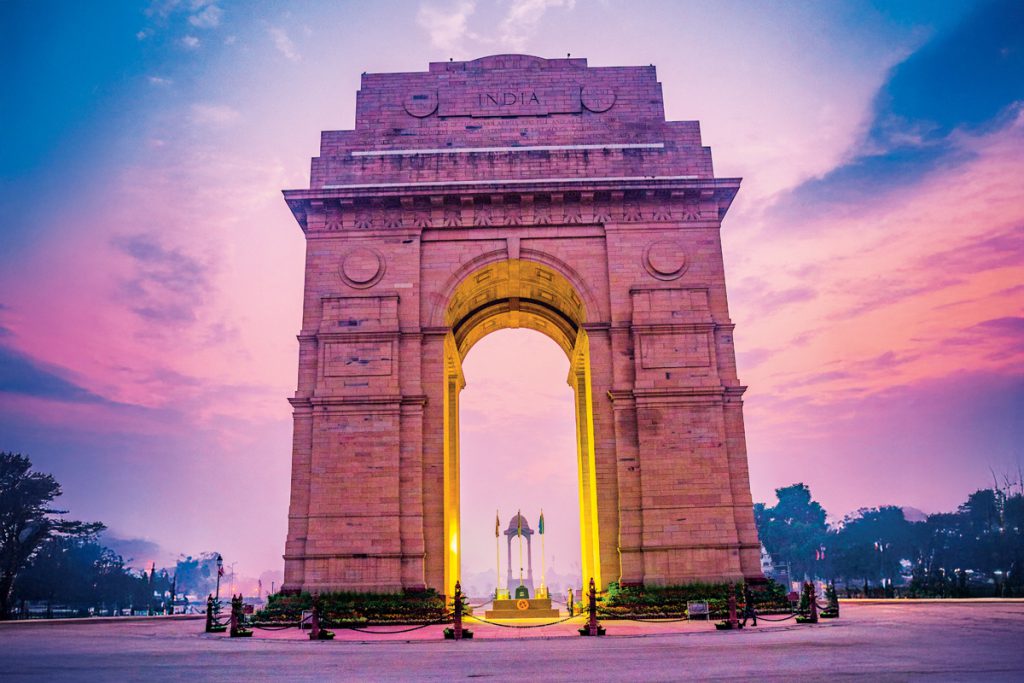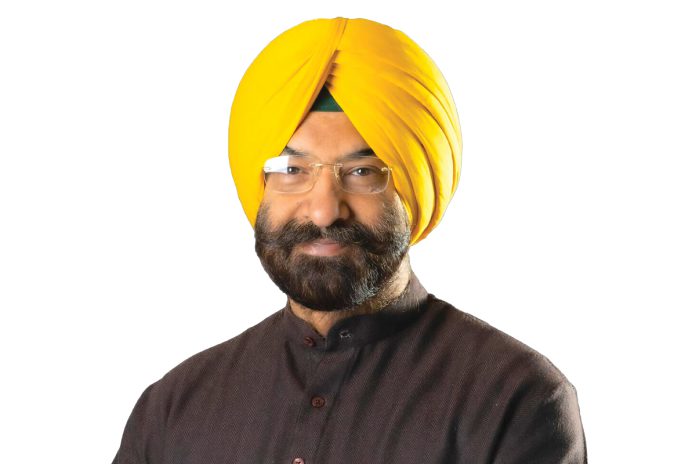Words by Neeraj Tiwari
In an exclusive conversation, Delhi’s Hon’ble Minister for Industries, Food & Supplies, and Environment, Forest & Wildlife, Shri Manjinder Singh Sirsa speaks about the national capital’s evolving developmental landscape. As Delhi stands at the crossroads of tradition and innovation, Minister Sirsa shared his vision of transforming the city into not just an economic powerhouse, but a shining example of sustainable growth, inclusive development, and effective governance.

Can you elaborate on your vision for Delhi’s industrial development?
Our focus is on building an industrial ecosystem that is modern, competitive, and environmentally responsible. We are actively formulating and enforcing policies that promote green industrialization. This means incentivizing industries that reduce emissions, adopt renewable energy, and invest in environmentally friendly practices. Delhi, despite being densely populated, has the potential to become a model city for clean industrial practices. We’re ensuring that the next phase of growth doesn’t come at the cost of our environment. Instead, we want industries and sustainability to go hand in hand — creating jobs, attracting investments, and preserving ecological balance.
How is your ministry addressing environmental concerns in the capital?
The environmental health of Delhi has long been a matter of concern, and it’s something we’re addressing with utmost urgency. Our multi-pronged strategy includes increasing urban green cover, cracking down on polluters, and pushing for cleaner modes of transport. We’re encouraging citizens to embrace electric vehicles, and our administration is investing in EV infrastructure and public awareness campaigns. Additionally, waste segregation and management are being improved at the ward level. We are creating localized policies for cleaner air and water, and we’re integrating smart technology to monitor pollution levels. Environmental justice is now an integral part of urban planning in Delhi.

What steps are being taken to ensure inclusive growth in Delhi?
Delhi cannot grow unless every segment of society grows with it. Inclusivity is not just a policy direction it’s a moral obligation. We’re enabling this through skill development programs, especially in semi-urban and underprivileged areas. These initiatives are equipping youth and women with employable skills across sectors. Additionally, supporting small and medium enterprises (SMEs) through training, subsidies, and mentorship is central to our approach. SMEs are the backbone of our economy, and by strengthening them, we ensure widespread prosperity. Our social policies are geared towards reducing inequality and enhancing opportunity.
How does Delhi fit into the broader narrative of India’s development?
Delhi, as the national capital, naturally carries the responsibility of being a torchbearer for progressive governance. We see the city as a laboratory for innovative policies that can be scaled nationwide. Whether it’s smart mobility, digital governance, or green urban planning, we aim to make Delhi an example others can learn from. This includes inter-departmental collaboration, efficient use of public resources, and ensuring citizen-centric services. In this broader canvas of India’s growth, Delhi represents not only a capital city but also a centre of policy experimentation and social upliftment.
Can you share any upcoming initiatives your ministry is planning?
We are excited about a few flagship projects currently in the pipeline. One of the major ones is the creation of eco-industrial parks, which will be a first-of-its-kind initiative in the city — combining economic activity with green buffers, waste recycling units, and renewable energy usage on-site. We’re also introducing electric buses to further modernize and green our public transport fleet. Furthermore, we are digitizing our ministry’s services so citizens can access licenses, permits, and welfare schemes without bureaucratic delays. These efforts are designed to enhance efficiency, reduce corruption, and improve transparency in governance.


